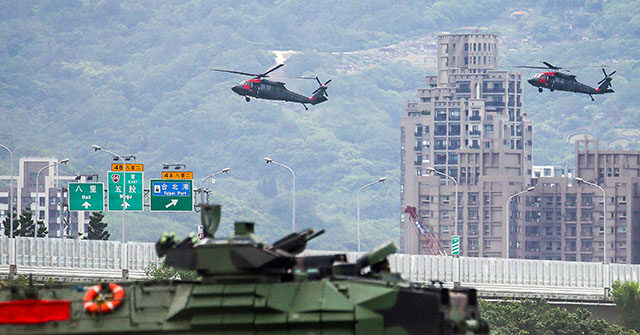In recent years, Taiwan has increasingly focused on envisioning the possibility of a Chinese invasion, a theme that is set to extend into the gaming realm. A recent crowdfunding initiative successfully raised $100,000 for a board game titled “2045,” which allows players to simulate a hypothetical Chinese attack on Taiwan set two decades into the future. This game employs various elements typical to modern board gaming, including cards and tokens that serve to represent diverse military, political forces, and the strategies they may employ. Players assume a variety of roles, from Taiwanese government officials and criminal factions to agents of Chinese espionage, highlighting the complexity of the scenarios they navigate.
KJ Chang, the founder of Mizo Games, curated the game’s setting by researching real social media posts from soldiers in the Chinese People’s Liberation Army to choose potential invasion landing sites. He expressed the game’s purpose as not merely predictive but as a creative exploration of conflict; it aims to give players a taste of war without actually experiencing it. Setting the game in a “cyberpunk” future, he noted that this timeframe allows players to mentally distance themselves from the grim scenario while grappling with the larger implications of warfare and societal response to a potential attack.
One of the game’s core objectives is to foster understanding among participants regarding how Taiwanese society might react to a devastating assault. A unique aspect of “2045” is its role-assignment mechanism, which ensures players may find themselves in adversarial positions compared to their personal beliefs and ideologies. Chang emphasized that the game does not mandate defending Taiwan; rather, it is a competitive environment where players act in self-interest, reflecting the chaos and complex dynamics that would likely characterize such a crisis. This role-playing aspect is designed to provoke critical thinking and discussions about the realities of conflict and division within Taiwanese society.
In promoting his game, Chang reached out to Taiwan’s 113 legislators, inviting them to experience the game firsthand. Many have taken him up on this offer, along with former officials and media personnel. While Chang states that the game is not politically motivated, he acknowledges the sensitive nature of the topic, which has led to marketing challenges, including refusals from other publishers to collaborate with him at international expos. Moreover, he has faced potential social media “shadowbans” that limit the visibility of advertisements for “2045,” highlighting the friction between the gaming industry and the political climate regarding cross-strait relations.
Interestingly, while Taiwanese board games commonly use components produced in China, Chang encountered refusals from Chinese manufacturers to produce “2045.” Instead, he found a local factory in New Taipei willing to create the game, which reflects the growing sentiment within Taiwan to embrace and develop domestically produced products amidst rising tensions. The desire to confront the prospect of a Chinese invasion through games might signify a broader shift in Taiwanese culture, which has historically been reserved regarding this topic.
Factors such as the Russian invasion of Ukraine and increased military maneuvers by China following U.S. political visits have catalyzed a change in public discourse around the potential for conflict. Taiwanese youth, in particular, exhibit heightened interest in exploring these themes through literature and media. For instance, the graphic novel “Western Pacific War: The Invasion of Taiwan,” created by former soldier Liang Shao-hsien, saw remarkable sales growth after China’s assertive posturing, suggesting a significant cultural shift. Additionally, the upcoming television series “Zero Day,” which has gained rapid attention through its trailers, explores the dynamics of a military incursion and public sentiment, further emphasizing this transformation in how Taiwanese society is grappling with the fear of invasion.

